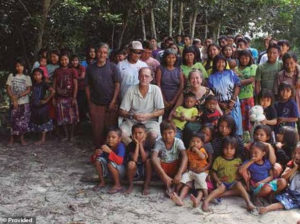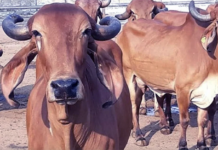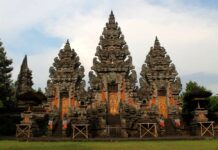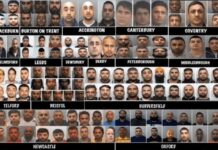An American missionary in Brazil is under investigation and may be charged by authorities with genocide for

making illegal contact with a remote indigenous tribe, potentially exposing them to diseases.
Brazil’s National Indian Foundation (FUNAI) have asked authorities to look into an incident that took place in December involving missionary Steve Campbell and the Hi-Merimã tribe. FUNAI notified federal prosecutors and the police in early January about the alleged encounter.
Campbell and his wife are based in Rondonia, Brazil and work with the Jamamadi Indians in the Brazilian state of Amazonas. He has lived with the Jamamadis since 1963, when he arrived in the region as a child brought by his parents, who are affiliated with Wycliffe Global Alliance.
Steve’s “work is to help with medical, mechanical and countless other ministry opportunities with the Indians and missionary families,” according to the Greene Baptist Church in Maine, one of the Campbell’s partnering churches. His sending agency is the Baptist Bible Fellowship International.
While Campbell lived among the Jamamadi, he entered the more isolated Hi-Merimã tribe’s area by accident while teaching the Jamamadi how to use GPS devices, according to the Brazilian newspaper Folha de São Paulo.
In the 1970s, indigenous Indians in Brazil were placed under the protection of FUNAI through the passage of the Indian Statute. Since then, there have been political battles between those who favor integration of the groups into society and others who believe they should remain isolated and protected from modernity.
Powerful mining and agricultural interests that want the indigenous reservations open to development have also influenced the direction of government policies. Gold and diamond hunters paid FUNAI in recent years to conduct explorations in the Palimi-u River area until November 2018, when the army stepped in and arrested 900 people and confiscated 350 kilos of gold.
For most of the last 30 years, FUNAI has maintained a policy of non-contact with the isolated tribes after several of them lost up to two thirds of their population when they contracted diseases like measles. Some of the groups also faced adverse consequences when they were forced to relocate due to major highway construction projects.
Bruno Pereira, who coordinates FUNAI’s study of isolated groups in the region, takes a harsh view of Campbell’s (and other missionary) activities. “If it is established in the investigation that there was an interest in making contact, using his relationship with other Indians to approach the isolated, he could be charged for the crime of genocide by deliberately exposing the safety and life of the merimãs,” he noted in a statement to Brazil’s media.
“Their immunological memory is not prepared for a simple flu or conjunctivitis,” Pereira noted. “Another point is contacts conducted by people who do not respect the self-determination of these peoples and their ways of life. Historically, this has led to violent interference in their vital relationships with the environment, with family relationships, with what they believe. ”
However, since Brazil’s President Jair Bolsonaro assumed office January 1st the policies regarding indigenous tribes are changing, which has ignited a heated debate. President Bolsonaro is a conservative sometimes compared to President Trump. Raised Roman Catholic, he and his family have regularly attended a Baptist church in Rio de Janeiro.
Bolsonaro has said there will be changes in the current policy of not contacting isolated Indians. He infuriated protectionists by appointing an anthropologist and evangelical pastor, Damares Alves, to a newly created position: Minister of Women, Family, and Human rights – which will oversee the country’s 900,000 indigenous people.






